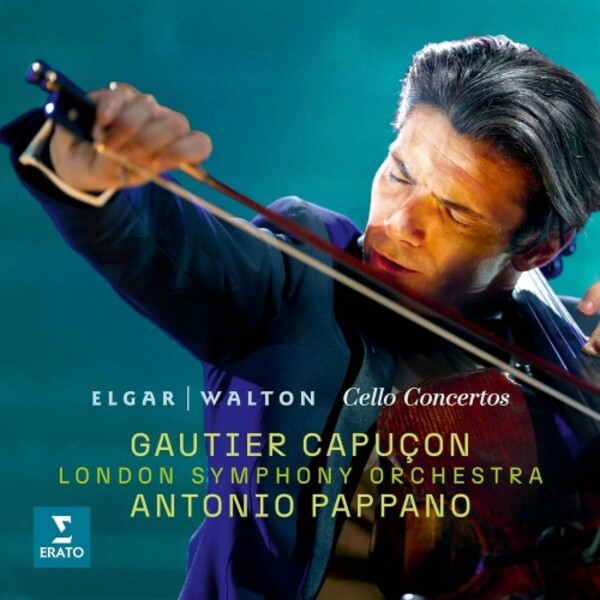ELGAR; WALTON Cello Concertos (Gautier Capuçon)
View record and artist detailsRecord and Artist Details
Genre:
Orchestral
Label: Erato
Magazine Review Date: 11/2024
Media Format: CD or Download
Media Runtime: 58
Mastering:
DDD
Catalogue Number: 2173 22648-3

Tracks:
| Composition | Artist Credit |
|---|---|
| Concerto for Cello and Orchestra |
Edward Elgar, Composer
Antonio Pappano, Conductor Gautier Capuçon, Cello London Symphony Orchestra |
Author: Edward Seckerson
A dream team in the making, I suspect. Capuçon and Pappano may be collaborating here for the first time but it’s a meeting of musical minds and sensibilities for sure. The coupling of these concertos is nothing new, of course, but understanding their differences as well as their emotional kinship (arriving in the wake of the First and Second World Wars) is something that both soloist and conductor display in abundance.
The immediacy of Gautier Capuçon’s 1701 Matteo Goffriller cello in the declamatory opening flourish of the Elgar is super-arresting, the tone a dark mahogany, the assertiveness of manner demanding that attention is paid. The orchestral response from Pappano’s London Symphony Orchestra is the very opposite. Conciliatory, tender, coming to rest on a string chord that is hushed and expectant. That famous first subject is deftly understated and it is the Frenchman’s ability to marry poise to passion that is a hallmark of the whole performance. Capuçon’s legato is generous and songful, his use of portamento natural and spontaneous. But it is his blissfully true tuning that lends such intensity to the effect.
That singing quality and perfect pitching is self-evident even at speed in the dazzling Scherzo where his passagework doesn’t drop a stitch and the articulation quite takes the breath away. Contrast that with a welcome reining in of sound in the slow movement where introspection and nostalgia are so touchingly conveyed, not least in the final page where for a moment or two it seems like the composer might be lost for words.
Pappano alludes to both Pomp and Circumstance and the fat knight Falstaff in the swaggering finale but it is the great epilogue of the piece where performances are defined. Capuçon does not short-change us on the emotion but nor does he overplay it – which, unless you are Jacqueline du Pré, can diminish its effect.
It is no surprise that Capuçon warms to the Walton. There is a Frenchness – a piquancy – about its exotic nature, a quality of ‘night music’ accentuated in the orchestration by additions like vibraphone, celesta and harp. Capuçon personifies Walton’s favourite direction sognando (‘dreamily’) in the gorgeous chromaticism of the opening theme but equally he recognises the two big cadenzas later in the concerto as representing the restless and darker undercurrent of the piece. Pappano and he revel in Walton’s punchy (yes, jazzy) kinetic energy. They are quite a team.
Discover the world's largest classical music catalogue with Presto Music.

Gramophone Digital Club
- Digital Edition
- Digital Archive
- Reviews Database
- Full website access
From £8.75 / month
Subscribe
Gramophone Full Club
- Print Edition
- Digital Edition
- Digital Archive
- Reviews Database
- Full website access
From £11.00 / month
Subscribe
If you are a library, university or other organisation that would be interested in an institutional subscription to Gramophone please click here for further information.




